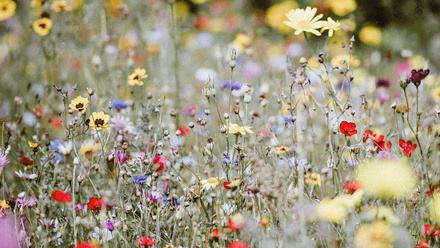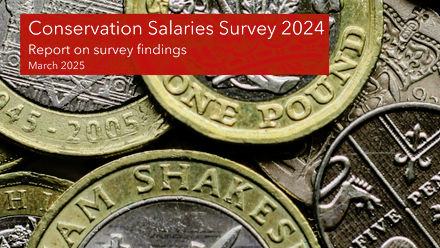Martin joined Icon last year as a Trustee. As well as his passion for heritage, history of art and design, he is a writer and conference speaker on the future of work and the impacts of new technology on jobs. He has worked with the RSA’s (Royal Society for the encouragement of Arts, Manufactures and Commerce) Future Work Centre and the CIPD’s Policy Forum advising government on issues including the gig economy and apprenticeships.
Why are we so quick to see the benefits of investing in infrastructure but not so much in people’s skills? In financial terms they are pretty similar - money spent upfront gives a return over many years as people pay to use bridges, tunnels, and railways. Investing in skills through training and education means money spent upfront with an income for the individual and for government too through tax.
‘Build, build, build’ to recover the economy is a popular mantra and I support it, but investment in training needs a lot less capital and has many benefits. Of course, this assumes that the skills and jobs we train for now will still be in demand many years from now. When I’m not working with Icon, one of my areas is the future of work and the impact of AI (Artificial Intelligence). If conservators as a profession were a stock market company, I’d be putting my money in now as a long-term investment. Here’s why.
“If conservators as a profession were a stock market company, I’d be putting my money in now as a long-term investment.”
1. Future-proof jobs
The long-term outlook for conservator skills is much better than many other professions which will be impacted more by AI. AI is very different from previous technology changes which mostly impacted lower skilled jobs through automation. The crucial difference with AI comes with machine learning because it learns from mistakes. We are already seeing better outcomes in diagnosing treatment for cancer in trials of AI v Oncology Consultants.
The same kind of complex analysis is present in many professions including accountants, actuaries, and lawyers. For example, lawyers analyse data and calculate probability of outcomes and they produce fact-based arguments all of which AI is starting to do. I’m not saying that all these professions will disappear, because many of their activities are about relationships with people. These are high paid professions with substantial investment upfront in training and I believe their skills will command less of a premium and some jobs will go. I don’t see the same threats from AI to the heritage industry or conservators.
2. Health and wellbeing
I would invest because of the huge focus on wellbeing and better mental health which continues to grow from government, charities, and employers. As the Lottery Heritage Fund says:
"Heritage has a strong role to play in improving wellbeing for people in the UK. By bringing us together at all stages of our lives, building connectedness and a sense of belonging in our neighbourhoods, supporting individual confidence and self-esteem, and providing opportunities for people to be active, heritage projects can make a significant contribution to the way people feel about their lives."
Social prescribing by GPs for mental health is growing and is a key part of the NHS future plans including active participation in conservation, museums, and group learning about heritage.
3. Soft power
The UK is going to have to create a new place for itself in the world post Brexit. I spent a lot of my career in Asia, Latin America, Middle East, and Africa. They see the UK as being creative, artistic and original with industries like films, architecture, fashion, music, theatre, art, and industrial design as our strengths. New creators will want access to the conserved past to provide inspiration and to source material.
4. Regional diversity
With increasing concern about regional development away from the South East, jobs in conservation have the advantage of being spread over the whole country. When television jobs moved to Manchester there was a huge cost of relocation and new infrastructure which won’t be the case in conservation.
5. Leisure
The growth in leisure time and living longer creates an increased demand for learning and growth of learning for pleasure. I’m bombarded by targeted adverts on Facebook for master’s degrees in Antiques, or the History of Design and lots of weekends learning about all sorts of craft skills. This is of course a global business with no additional marginal cost to selling online courses across the world. Then there’s the growing number of history and heritage magazines and TV programmes as the battle to find content for all the platforms hots up. 5G will be another catalyst because of the mobility and image quality.
6. Sustainability
Investment is being drawn to sustainable low carbon emissions industries and the green economy. I’m no expert on this but I am guessing that the carbon footprint of conservators is pretty small compared to many industries.
The RSA and British Council recently produced a report ‘Heritage for Inclusive Growth’ which says, ‘heritage assets and activities can be vital in supporting local economic development and community wellbeing’. There are several case studies from around the UK with an emphasis on ‘inclusion’ and the report also encourages:
"HM Treasury to work with the sector to produce better data reflecting the contribution of heritage to inclusive growth. This approach would span the full range of social, environmental and economic benefits of heritage, and encourage investment in heritage for the purpose of building resilient and inclusive local economies and communities."
We must train and build on existing skills in growth industries for the long term. So, for me now is the time for both the public and private sector to invest in heritage and the skills it requires. It’s no different to the economic case for building infrastructure and with longer working lives the payback keeps increasing!
---
Image: Creative Commons






